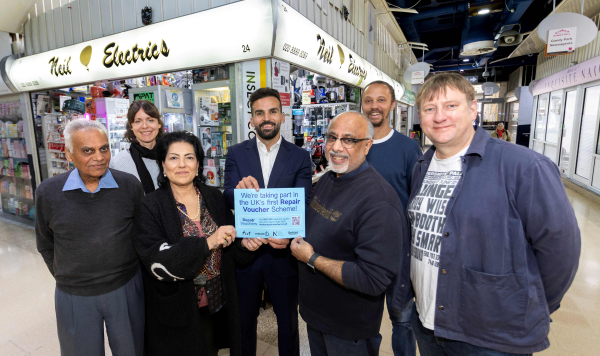North London Waste Authority (NLWA), the public body responsible for delivering the new Energy Recovery Facility at Edmonton EcoPark in Enfield, has become a partner in a major initiative, which would allow the new facility to go beyond net zero and take CO2 out of the atmosphere.
The Bacton Thames Net Zero (BTNZ) Cooperation Agreement is a collaboration between businesses and organisations in South East England and the Thames Estuary, which will explore the feasibility of transporting and storing carbon dioxide from the region in the Hewett depleted gas field in the North Sea. At the same time, NLWA is currently investigating the viability of installing carbon capture infrastructure at the EcoPark in the early 2030s.
NLWA Chair, Cllr Clyde Loakes, said: “With or without carbon capture the new Energy Recovery Facility is the most environmentally responsible method for dealing with waste. It has a far lower impact on the climate than landfill. With carbon capture and storage, however, the facility will have an even more important role in combatting the Climate Emergency as it will actively take CO2 out of the atmosphere.”
Carbon capture and storage will make the Energy Recovery Facility ‘carbon negative’ or lower than net zero. Carbon negative is a reality as the facility receives large amounts of biogenic materials for hygienic disposal – for example, soiled paper towels, food residues – found in household black-bag waste. All things on Earth contain some carbon but the carbon in biogenic materials has a neutral impact on the climate in stark contrast to the CO2 generated by fossil fuels and materials derived from them.
The new publicly owned Energy Recovery Facility, now under construction, will replace the current plant, where since 1971, household waste thrown out by two million north Londoners has been used to generate electricity for the national grid. Earnings from electricity generation help reduce the cost of waste disposal for council taxpayers and ensure north London residents benefit rather than shareholders of private waste disposal companies. This November, due to global energy price rises, NLWA gave a ‘windfall dividend’ of £4.75million to north London councils to help fund climate initiatives and support vulnerable residents through the cost-of-living crisis.
The new Energy Recovery Facility will generate not only electricity but also heating for many thousands of local homes using household black-bag waste, bringing greater energy security and freedom from gas boilers.
NLWA’s ambition is for the new Energy Recovery Facility to become one of the first publicly owned facilities in the UK to implement carbon capture.







